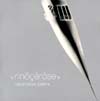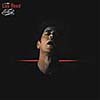
Comment
on this story
|
 |

This week: French disco guitars, the life of Lou, and the death of Britpop
Rinôçérôse

Installation Sonore (V2)
Now here's a million-dollar idea: guitar-dominated house music. We're not just talking about the plinky rhythm licks that most house producers favor, either. Rinôçérôse goes in for fuzz guitar, acoustic guitar, talk-box guitar, bottleneck guitar, flamenco guitar, e-bow guitar, wah-wah guitar, even lap steel guitar—almost all the steel-string flavors house-resistant music lovers go for. The French group isn't exactly coy about it's crossover intentions, either, as cheeky titles such as "La Guitaristic House Organisation," "323 Secondes de Musique Repetitive avec Guitare Espangole," "I Love Ma Guitare," and "Rock Classics: Volume I" bear out. But like the Concorde, which pokes its needle nose across the cover art, Installation Sonore is sleek, modern, continental, and despite its limitations, not completely a gimmick.
Over the course of 10 instrumental cuts, the group (lead by Jean-Philippe Freu and Patrice Rémi) layers all sorts of traction-improving rhythm parts, spacey leads, acoustic pluckiness, and textural six-string sound over bumping basslines and basic house thumps. While the guitar definitely dominates here, Installation Sonore is still straight-up house. Opening track "La Guitaristic House Organisation" builds to noisy, distorted frenzy, but half of the ruckus comes from the timely use of a Roland 303. "Popular Mechanics" and the blues-channeling "I Love Ma Guitare" even feature some fuzzed-out soloing, but it's just another element pushed down in the mix. For all the various guitars present, it's the hand percussion, keyboards, and flute (bane of guitar lovers everywhere) that give cuts like "Radiocapte," the lightly bossa nova'ed "Mes Vacances � Rio," and French hit "Le Mobilier" their pep, their melodies, and their measure of fashion-runway sashay.
Of course, Installation Sonore is probably worth a million francs rather than a million bucks, at least on this side of the Atlantic. The hooks and tunes non-househeads might grasp for are fairly low-key, and all except the most open-minded American rock fans still get a little uncomfortable when they hear that four-on-the-floor kick drum—even now, after more than 20 years, disco still sucks. But anyone game for a slinky new vision of dance music will be glad they opened their wallets.
—Lee Gardner
Lou Reed

Ecstasy (Reprise Records)
For starters, I'll go out on a limb and say that, with the possible exceptions of Paul McCartney and Van Morrison, Lou Reed is the only alumnus of the glory days of the '60s who has avoided the inherent Catch 22 of rock 'n' roll. Unlike his contemporaries (Jagger/Richards, Page/Plant et al), Reed has continually created vital music without becoming a caricature of his younger incarnations, with only an occasional, forgivable misstep along the way. Instead of rehashing trite love/lust/partying themes as a geriatric teenager, good old Lou looks directly at the stark reality of life from a grown-up perspective. That said, don't expect a bunch of songs about the glory of aging gracefully. Just because Reed is something of a pragmatist doesn't mean that he's found peace with the world on his newest album, Ecstasy.
Reed has evolved quite a lot since the heady days of The Velvet Underground, but he's still the same, albeit older, urban punk with a heart of gold. As always, his music is coated with a thin film of subway grit and darkened by the omnipresent monolith of New York City. And Reed's guitar playing just gets better and better.
Ecstasy finds its peaks on the slower and more brooding pieces. Lou was never much of a singer per se, more of a street poet. So the quieter songs, such as the title track and "Rock Minuet," offer perfect lullabies to accompany Reed's disconcerting bedtime stories.
For me, the release of every Lou Reed album is a cause for celebration. Therefore, it's hard to rank the new outing as of yet—I've only listened to it about 20 times. Ecstasy is definitely a step up from the last studio release, Set The Twilight Reeling, which was a little too upbeat to rank as a classic. So time will tell which place this album eventually finds in the ranking of Reed's auspicious career. Ecstasy is at least up to standard, a great accomplishment in itself. Yet another gripping chapter in of the Reed legacy, and what more could we ask for?
—John Sewell
Oasis

Standing on the Shoulder of Giants (Epic)
Is Oasis still a band? Were they ever? The group's first two albums were likable enough in a football-anthem sort of way, but they were most notable for the songs they referenced (or lifted wholesale) from the Beatles, T. Rex, and anyone else guitarist Noel Gallagher happened to be listening to. Even the endless spats between brothers Noel and Liam seemed derivative, a pale imitation of better blood feuds.
It's been a few years now and Oasis' inherent laziness and lack of anything at all to say has produced an uninspired series of breakups, reunions, and stillborn releases. Standing on the Shoulder of Giants is hardly likely to reverse the trend. Tired of stealing from other people, Noel is now just raiding his back catalog, and he doesn't even know his own best bits. It's like the early albums without the snotty energy or the hits. The songs sound bored with themselves. One track asks, "Where Did It All Go Wrong?" Look in the mirror, lads.
Britpop never really was the future; now it's barely even the present.
—Jesse Fox Mayshark

April 27, 2000 * Vol. 10, No. 17
© 2000 Metro Pulse
|